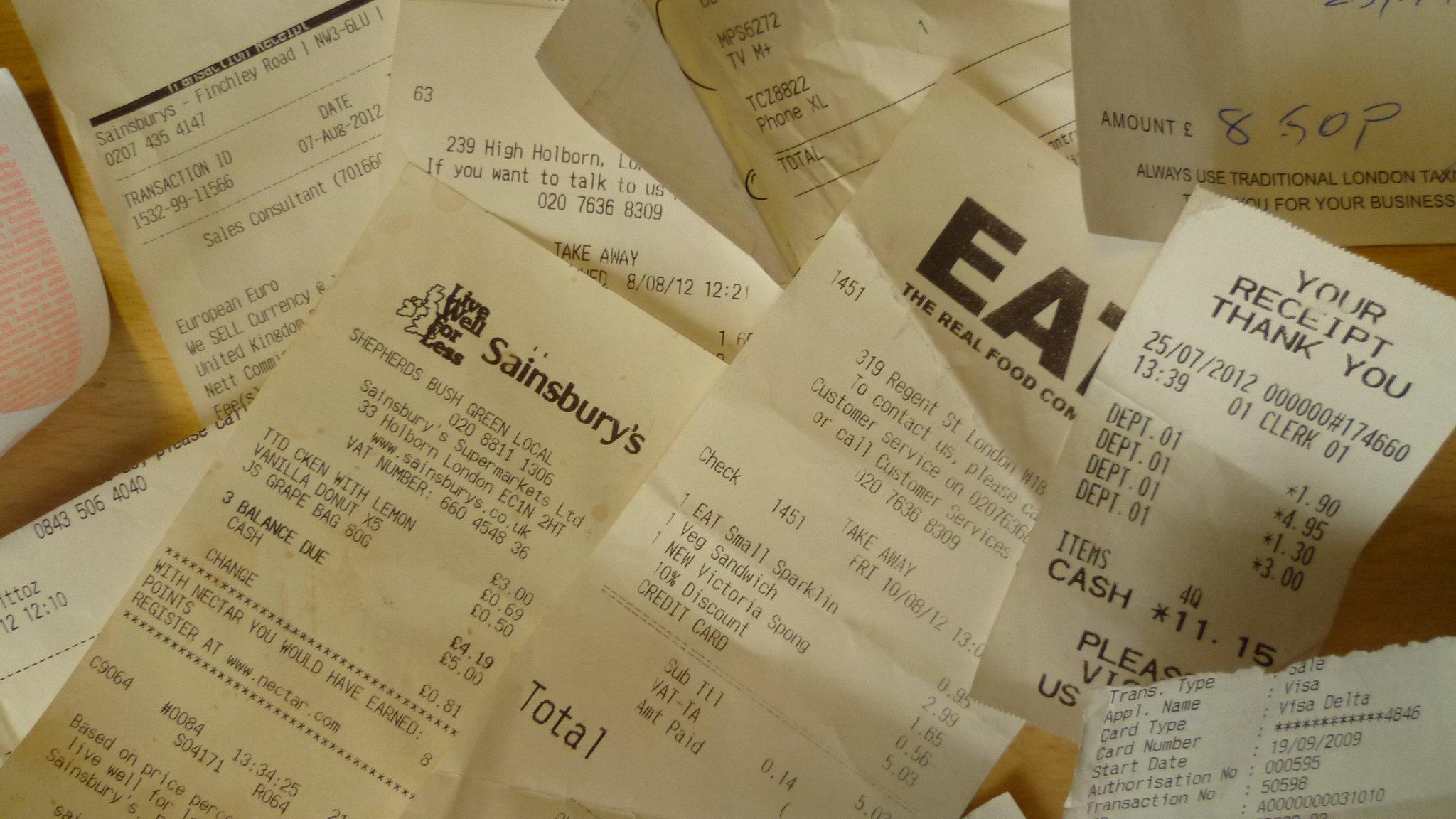Will paper receipts become a thing of the past?
- Published
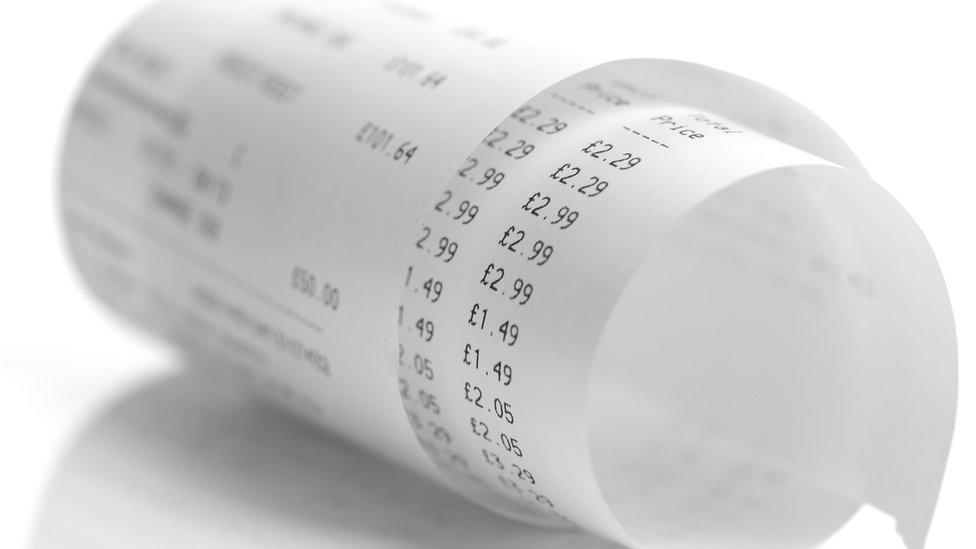
Tesco is trialling a system where an e-receipt is sent to the customer instead of a paper print out. Is this the beginning of the end for paper receipts?
A purse or wallet brimming with paper receipts is a familiar sight for many shoppers.
But an increasing number of big-name retailers are signing up to use e-receipts - where customers can choose to have their receipt sent to an email address or a mobile phone app.
The latest retailer - Tesco - is trialling a new "digital receipt service" in its store in Harlow, Essex, until mid-November, as reported by Marketing Week, external.
Customers tap their contactless debit or credit card at a separate terminal at the till and a receipt is sent to a mobile phone app, using a system called "Tap and Tag".
The retailer says the information cannot be used for marketing as the data is stored anonymously.
It adds that allowing customers to keep their receipts in one place could make shopping trips easier.
'Easy and convenient'
Tesco is not the first retailer to try digital receipts. Apple stores began sending e-receipts in 2005, with other retailers following suit.
Debenhams and Topshop both began using digital receipts last year, while keeping the option for a paper receipt.
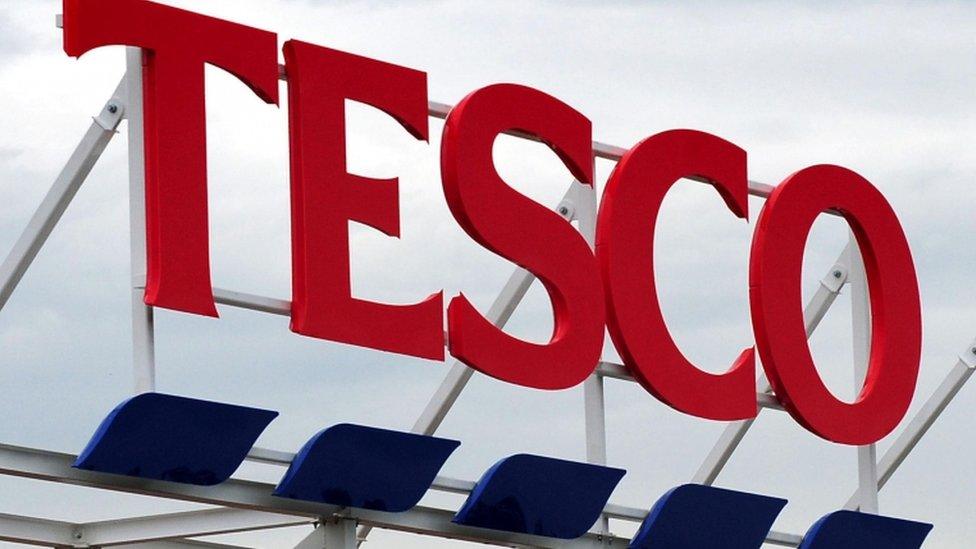
Tesco is trialling the "digital receipt service" until mid-November
Kevin Kane - marketing director for Tag Retailer Systems, which is working with Tesco - says its "Tap and Tag" system has advantages for retailers and shoppers.
It eliminates the need to take email addresses, reducing the time taken at the till, which is a benefit for both, he says.
Customers at some retailers need to provide their email address if they want to receive an e-receipt.
There is also an option of a "short receipt" - which is the tenth of a size of a standard receipt - for those who would prefer a paper record.
'Growing trend'
Another company that provides e-receipt systems to retailers - including Argos, Monsoon and Halfords - is Yocuda.
Its CEO Andrew Carroll says there is a "big push" in retail to "personalisation" - where the retailer can send targeted information that is relevant to specific customers, if they opt in.
"It is a growing trend that customers want to have all their receipts and information in one area," he says.
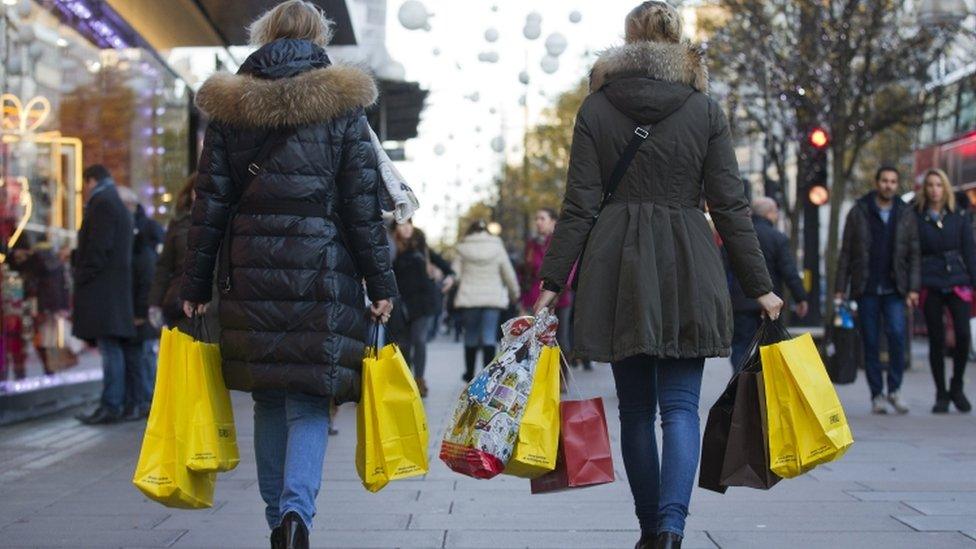
Major retailers including Debenhams and Argos already offer the option of an e-receipt
But could this trend herald the end of the paper receipt?
"There are people who still pay by cheque - digital probably will dominate but there will still be those who want a paper receipt," says Mr Carroll.
Ronan Hegarty, news editor of The Grocer magazine, agrees.
"I don't think this is the end of paper receipts," he says. "People like to see the promotions they get and the money they saved.
"It's all part of a continuing trend by retailers to operate more cheaply and more efficiently. But ultimately they are there to serve their customers and they're not going to force changes onto them."
Caroline Abrahams, Age UK's charity director, says a paperless future is "still very distant" for some older people who have never used the internet.
"It is vital that businesses recognise this and maintain a range of ways to meet the needs of all their customers," she says.
"Not only is this good for older people, it can make great business sense as well."
- Published26 April 2013
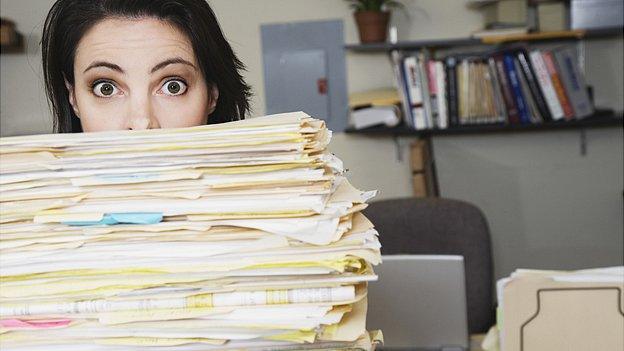
- Published15 September 2012
